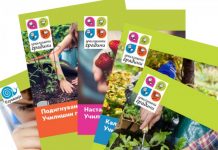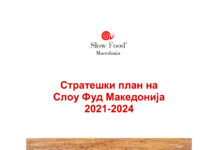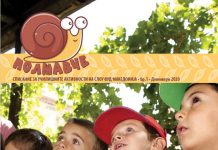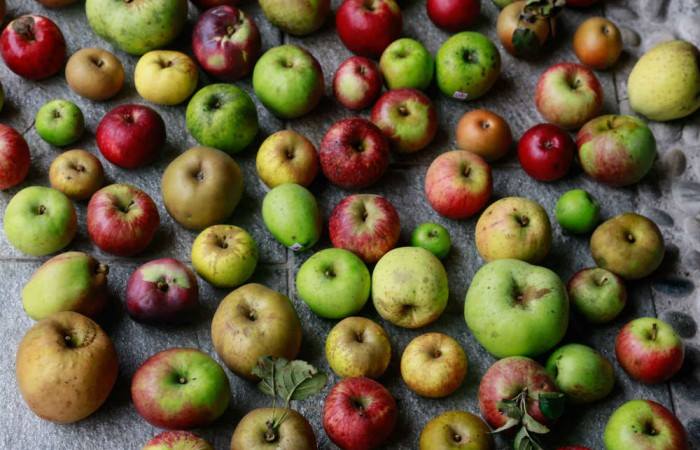This year, in the early days of June, one of the most unique gatherings in the history of the Balkans took place. As you may know by know, I am as my Macedonian friends call me, a Slow Food fanatic. Ever since I became aware of Slow Food Macedonia in 2008, I have been following them physically and on the internet. At my first Slow Food International Gathering of Food Communities in Turin Italy, I decided to ditch the USA regional meeting in favor of learning what was going on in the Balkans. I love my fellow Americans, but I did not travel 6000 miles to meet other Americans, I wanted to see what the rest of the world was doing. I was not disappointed, the meeting highlighted efforts in all the former Yugoslav Republics, Romania, Turkey and Bulgaria with some of the most inspirational stories and projects. I was proud to have this blood flowing in my veins. At that time, the region was still smoldering from all the conflicts in the 90’s, and trying to adjust to globalization with their fragile economies. I heard stories of small heirloom production and farming techniques that were on the verge of extinction when trying to compete with what a Plum farmer in Bosnia called “the Nutella Generation.” With the newfound availability of the internet and cable, mothers, public health officials and small producers alike were struggling to remain relevant in competition with inter-national brands like Coke and McDonalds. Slow Food provided a forum for these small producers, creating markets for their products, while fostering cultural pride.
In two short years, the first Terra Madre Balkans 2010 was formed, which followed Terra Madre International. This was so successful; a second meeting of the Balkan Pen-insula Terra Madre was held at the Bulgarian Academy of Science in Sofia from June 29 – July 1st in 2012. What was extraordinary about this particular conference was that Slow Food Founder Carlo Petrini attended, and gave the charge to Balkan Members to work to protect the unique foods, plants and animals of the Balkan region.
A project of Slow Food International that sets it apart from all other food related organizations is its emphasis on culinary and agricultural Biodiversity. The two signature Slow Food projects that do this are called The Presidia, and The Ark of Taste. I will write infuture articles, about the Presidia’s of Mace-donia. The Ark of Taste is a catalogue of the world’s most endangered foods. Currently, there are over 1000 foods on this “ark” with over 400 coming from Italy alone. Petrini gave the charge to participants at the Balkan Peninsula Terra Madre to literally, get on the ark with as many products as possible. As one of the richest and most diverse botanical regions on earth coupled with ancient food traditions, who knows, the Balkans could fill the ark all by themselves! Another outcome of the Terra Madre Balkans was the ESSE-DRA Project. ESSEDRA stands for Environmentally Sustainable Socio Economic Development of Rural Areas.
I had the honor of being a congressional delegate for the Sixth International Slow Food Congress in 2012, and Petrini gave the same charge to those in attendance, (representatives from 94 countries,) to put 10,000 new items on the Ark of Taste in the next few years. The international Slow Food membership has taken this challenges very seriously with members all over the globe networking within their food communities to seek out, learn stories and create awareness of foods and traditions within their regions. I am part of the US Ark of Taste committee as well as on the California Slow Food Region Ark committee, helping to craft USA Ark application documents and reach out to local chapters for California nominations to board this most unique project.
My curiosity was peaked when I saw pictures from a meeting for Bulgarian and Macedonian Biodiversity that took place in Kyustendil, Bulgaria in the beginning of June. Kyustendil is very close to the Macedonian Border, and part of the beautiful Osogovo Mountain region. Kyistendil was a natural location for the Biodiversity gathering since so many plants, fruits and foods are commonly shared between nations that share this border region.
Balkan countries share common unique food traditions and similar socio-economic conditions. In the realm of food, joining forces to safeguard rural heritage benefits all parties concerned, and transcends national borders. Slow Food and the Terra Madre net-work in the Balkans boasts more than 1500 Slow Food members, 11 Presidia, 60 Terra Madre food communities, 15 food and taste education programs in schools and 25 mem-ber chefs. Slow Food International directly supports more than 25 projects in the region, which range from heirloom cheeses, fruit jams and rare sheep. Slow Food Foundation for Biodiversity is also helping all parties involved to map local traditional products and promote local food supply chains. This is vital to creating sustainable economies in rural areas that otherwise could not survive competition from international multinational brands. Such projects also focus on small producers who are often overlooked in inter-national trade agreements, and are a lifeline in preserving ancient cultural traditions.
The Macedonian/Bulgarian Biodiversity meeting was convened in response to the charge of Carlo Petrini at both the Balkan and International Terra Madre to put more items on the International Ark. Leaders from Macedonian and Bulgarian Slow Food chapters, University academics and food producers gathered to discuss how to create outreach and interest for protecting the regions most unique foods. What sets the International Ark of Taste project apart in addition to preserving heirloom crops and livestock is that entire cultures and traditions will also be maintained through highlighting products in the region. What is truly remarkable is that the nations of the Balkans, which in the past have often been at odds to say the least, are coming together to preserve their common bioregion. What better way to create border cooperation than sharing Wild Fig Slatko, Kashkaval and Rakia?
The Biodiversity meeting in Kyustendil met to combine the goal of ESSEDRA, Balkan Ark of Taste efforts to make sure that economic development in rural areas will be sustainable and allow for biodiversity of food products. Timeless traditions of food and agriculture are being lost as young people flock to the cities for employment, where they develop tastes for western fast food. Slow Food Bulgaria is launching a PR campaign calling for citizens to identify food items and share food memories. Similar efforts are beginning in Macedonia, with active participation of all the chapters as well as academics from the Agricultural Faculty at various Macedonian Universities. The meeting was a unique opportunity to share culture, through music and of course food.
I had the pleasure of interviewing Casey Angelova, an American living in Bulgaria. Angelova leads a Slow Food Kyustendil Chapter in Bulgaria, as well as farming Cherries, Asparagus and Hazelnuts with her husband and family. She attended the 2010 Balkan Peninsula Terra Madre, as well as the Congress in Turin last October. Casey reported on the Macedonian Bulgarian Biodiversity meeting on her blog, Eating Gardening and Living in Bulgaria. It was so fun to hear her descriptions of the meals and potlucks presented at the Biodiversity meeting in Bulgaria. Macedonian cheese, Fig Slatko, Vintners and Rakia producers proudly shared their creations, and apparently no one went away hungry or upset in any way. I can say, I have yet to attend such a potluck, but hope to do so when I am in Macedonia in September. The outcome of this meeting was to work to place 50 items from the Bulgarian/ Macedonian region on the Ark in the next 5 years. There are plans for cross border tours between Macedonia and Bulgaria to learn about each others culinary treasures, and efforts to catalogue products in a agriculture and culinary map of shared regions. With the input from a collection of Academics as well as the communities, this should be a comprehensive living history of the stories we heard from our relatives for so many years. I for one, eagerly await the literal fruits of their labors. There were also plans at this meeting to have another Balkan Terra Madre in Croatia some time in 2014.
In our age of great political turmoil and global climate change, the urgency to create opportunities for peaceful cultural exchange, and environmental preservation are extremely urgent. Slow Food Foundation for Biodiversity and the Ark of Taste offer a unique opportunity to combine efforts and address much of what ails our world. We can learn much from our Cousins in the Balkans. Stay tuned for more updates on the delicious goings on in the Old Country!
By Stephanie Georgieff
Објавено на: 01/08/2013
Медиум: http://www.makedonskatribuna.com/












